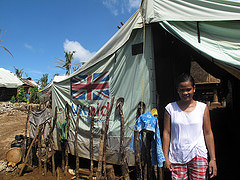11th July 2014
Countering ‘the globalisation of indifference’

Pope Francis rightly calls on the rich to do more to ensure equity for the poor. We must listen to the counsel of those on the periphery, he tells us. And we should be generous in our solidarity – a word, he told his audience on a recent trip to the Italian region of Molise, that seems to have fallen out of fashion.
Despite the recent economic crisis, this is a message the United Kingdom is taking to heart. In a speech on 7 July in the City of London, the International Development Secretary, Justine Greening, made clear that the UK will maintain its high level of ambition in international development on behalf of the poorest people in the world, who “aren’t just going hungry – they want justice, they want a voice, they want jobs, they want to own their own land grow their own businesses”. And she explained that our principal target as we work on the post-2015 international development agenda will be the 900 million people who will still be living in extreme poverty in 2015. “They will be some of the most marginalised, most vulnerable people on the planet – the most difficult to reach. Many of them will be girls and women”.
Over the last ten years, British taxpayers have voluntarily given between 9 and 11 billion pounds every year out of their own pockets to charitable causes. They have responded generously to appeals, and in many cases the government has sought to match that generosity. The UK is the only major industrialised nation to contribute at least 0.7% of our national income to development. We are also by some distance the principal European provider of food, medical care and relief items for the millions of people suffering the consequences of the Syrian crisis.
The numbers tell some of the story. Unquantifiable, however, is the sheer effort put in by British NGOs, government, business organisations and civil society in working to ensure that economic growth, good governance, the rule of law, tackling corruption, peace and stability, and putting women and girls first – our development priorities – are implemented at home and around the world. Of course we can do more, though it is a truism in politics that there are no votes in international development generosity. Pope Francis is right to urge greater effort. He should know that there is already a lot going on for him to recognise.